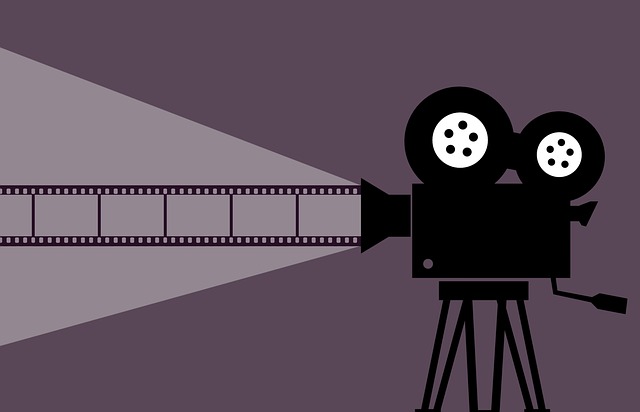
Are you ready to discover the transformative power of music?
Get ready to explore how melodies and lyrics go beyond mere entertainment, breaking boundaries and touching our souls in ways we never imagined.
From evoking emotions to connecting people across cultures, music has a unique ability to communicate and transcend limitations.
It influences our memory, shapes our mood, and even has healing effects.
So get ready to dive into the enchanting world of melodies and lyrics as we embark on this journey together.
Key Takeaways
- Music has the power to evoke intense emotions and has a psychological impact, lifting spirits or bringing tears.
- Music is a form of communication that bridges gaps and connects people, helping them cope with trauma, anxiety, and depression.
- Melodies and lyrics connect people from different backgrounds, play a crucial role in human history, and foster understanding between communities.
- Music influences memory and mood, transporting us back in time, shaping our memories, and instantly changing our mood.
The Emotional Power of Music
You'll be amazed at how music has the ability to evoke intense emotions within you. It's as if the melodies and lyrics have a direct line to your soul, bypassing all rationality and tapping into something deeper.
This is why music therapy has become such a powerful tool in healing and self-discovery. The psychological impact of music is undeniable; it can lift your spirits when you're feeling down or bring tears to your eyes when you're overwhelmed with emotion.
Music has this incredible way of capturing the essence of human experience, connecting us all on a level that transcends language and cultural boundaries. It's freedom in its purest form, allowing us to release our innermost thoughts and feelings without judgment or limitation.
So next time you find yourself lost in a song, surrender to the power of music and let it guide you through the journey of your own emotions.

Communication through music can bridge gaps and connect people in ways that go beyond mere entertainment. It has the power to convey emotions, thoughts, and experiences that words alone cannot express. Music is a universal language that transcends cultural barriers, allowing individuals from different backgrounds to understand and relate to each other on a deeper level.
Musical therapy is one way in which music is used as a form of communication. It has been proven to have profound effects on mental health, helping individuals cope with trauma, anxiety, and depression. Through melodies and lyrics, music provides an outlet for expression and healing.
The language of music speaks directly to our souls, bypassing the constraints of language or societal norms. It allows us to communicate our innermost feelings without judgment or inhibition. Whether it's the pounding beat of a drum or the soothing melody of a piano, music has the ability to evoke powerful emotions and create connections between people.
Cultural Significance of Melodies and Lyrics
The cultural significance of melodies and lyrics lies in their ability to connect people from different backgrounds on a profound level. Music has always played a crucial role in human history, evolving alongside society and reflecting the changing times. From ancient chants to modern pop songs, melodies and lyrics have been used as a means of cross-cultural communication, bridging gaps and fostering understanding between communities. Take a look at the table below to see how different cultures have influenced each other through music:
| Culture A |
Culture B |
Result |
| African |
Latin American |
Afro-Latin |
| Indian |
British |
Indi-Pop |
| Native American |
European |
Native-Folk |
This historical evolution shows that music has the power to transcend boundaries, allowing for beautiful collaborations and unique fusions. Through melodies and lyrics, we can celebrate our differences while finding common ground, creating harmony in a world that craves freedom and connection.
Music's Influence on Memory and Mood
Immerse yourself in the power of music and discover how it shapes your memories and uplifts your mood.
Music has a unique ability to transport us back in time, evoking vivid memories and emotions. This is why music therapy has become an increasingly popular method for treating various mental health conditions. The melodies and lyrics we connect with during significant moments in our lives become ingrained in our minds, creating a lasting imprint that can be accessed through the simple act of listening to a song.
Not only does music have the power to unlock memories, but it also has the ability to instantly change our mood. Just think about how a catchy tune can lift your spirits or a melancholic melody can bring you to tears. It's this magical ability of music to influence our memory and mood that makes it such an essential part of our lives, providing us with musical nostalgia that transcends entertainment boundaries.
So go ahead, indulge yourself in the transformative power of music and let it take you on a journey through your own personal soundtrack.

The Healing Effects of Music
Explore the healing effects of music and let it guide you on a transformative journey towards emotional well-being. Music has long been recognized for its therapeutic benefits, particularly in relation to mental health. It has the power to uplift your spirit, calm your mind, and even transport you to another world. The soothing melodies and heartfelt lyrics can evoke deep emotions and provide solace during difficult times.
To illustrate the profound impact of music on our well-being, imagine a table with two columns and four rows. In the first column, write down negative emotions such as sadness, anxiety, anger, or loneliness. In the second column, jot down corresponding positive emotions like joy, peace, love, or connection. Then, through the magic of music, watch as these negative emotions gradually transform into their positive counterparts.
As you immerse yourself in the melodies and lyrics that resonate with your soul, feel the weight lift off your shoulders. Let music be your guide towards emotional freedom and a renewed sense of self.
Frequently Asked Questions
How can music enhance social interactions and foster a sense of belonging?
Music, as a therapeutic tool, has the power to bring people together and create a sense of belonging. It acts as a catalyst for community building, fostering social interactions and providing an outlet for self-expression. Let the music set you free.
What are some examples of how music has been used as a tool for protest and social change throughout history?
Music as a vehicle for activism has a long and powerful history. From Bob Dylan's protest anthems in the 1960s to Kendrick Lamar's politically charged lyrics, music has played a crucial role in inspiring social movements and challenging the status quo.
Can music help individuals cope with trauma and emotional distress?
Music therapy offers a powerful means of healing and coping with trauma or emotional distress. Through the soothing melodies, uplifting rhythms, and heartfelt lyrics, music has the ability to touch your soul and guide you towards freedom from pain.
Are there any cultural differences in the way melodies and lyrics are interpreted and appreciated?
Cultural influences shape the way melodies and lyrics are interpreted and appreciated. These differences add richness to our emotional responses, allowing us to connect with music on a deeper level, transcending boundaries and embracing freedom.
How does music impact cognitive development and learning abilities in children?
Music has a profound impact on cognitive development in children, enhancing their learning abilities. It stimulates brain activity, improves memory retention, and boosts creativity. From a young age, music creates a world of possibilities for their growing minds.
 SportsHollywoodLifestyleFashionHome & GardenTrendsPrivacy PolicyTerms And Conditions
SportsHollywoodLifestyleFashionHome & GardenTrendsPrivacy PolicyTerms And Conditions
